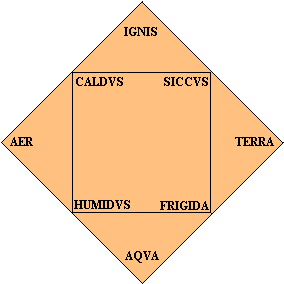 |
|  |
|
Chemistry is as old as human kind. The making of fire, the cooking of food, the making of pottery and melting of metals are all part of chemistry. But at the dawn of civilization, we couldn't actually call this a science. This was a world ruled by the unknown, and supernatural explanations were given for everyday events. In the early days of chemistry, tinkering with elements more resembled an art than a science. There is record among the Egyptians of ingredients mixed for mummification and cosmetics. They also had records of how to make drugs, dyes, iron and bronze. Chemistry then was used for many of the same purposes it is used today. It was used to extend life, to achieve beauty, to gain power and to get profit. Not far behind those of ancient Egypt were the Chinese, the people of India, the Hebrews, Babylonians, and the people of Greece. It is from these Greeks, especially those with ties to Egypt, that the art, or science, of alchemy grew. The science of actually studying elements and properties of matter was first noted among the Greeks. They learned much about the world and shared what they knew among their people. The Greeks decided that all of the elements could be divided into four groups, namely Fire, Earth, Air and Water. These were known as the four elements, and it was believed that all other substances came from them. An interesting note - in a different form, we now hold these as the states of matter. |
 |
|
 |
|
By combining these four elements, four additional states develop. Clockwise from the top, by mixing fire (ignus) and earth (terra), dryness (siccus) is produced. When earth and water combine, we have cold (frigida). A mixture of water and air results in moisture (humidus) and air and fire result in heat (caldus). This was the beginning of Greek understanding. The Greeks recorded their insights and wrote down their theories. This allowed their knowledge to be transmitted down through generations, even though it was lost to parts of the world for a time. Not only were they able to present the facts they learned, but also some ideas that proved to be more trouble than good. You see, Greeks were tinkering with alchemy. Alchemy is rooted in the idea that you can change one substance into another substance. There were two main goals of alchemy. The first is to make the elixir of life - which could make someone live forever. The second, and more popular, is to figure out how to turn cheap metals into GOLD. Of course, the Greeks never accomplished this, but they wrote as if they had, and that will change the world forever. |
 |
|
 |
|
Late in the middle-ages, the crusades began. European Christians sought to regain their holy lands from the Moslems who occupied them. As far as military victories, the crusades were dismal failures, but the knights brought back the Greek learning (as well as a nasty plague) to much of Europe.
People began to hear theories of how they could turn other metals into gold, and alchemy was a booming business once again. While not one ounce or dram of anything was turned into gold, people began to learn volumes about the world around them. For a price, you could even buy what another had discovered, and so information grew. The main goal of alchemy was still the same - life and gold. It was believed that a substance could be created that would allow both of these to happen. This was called the "philosopher's stone." (Note to Harry Potter fans: The original title of book #1 was Harry Potter and the Philosopher's Stone, but in America it was changed because it was believed that Americans wouldn't "get it." By the way, there really was such a person as Nicholas Flamel.)While the chief goals of alchemy were never met, people began to make a profit from the things they learned. Many of the elements on the periodic table were discovered and named during this time. New chemical reactions astounded people. People began to realize that there was more money to be made in the actual science than in the false science of trying to discover the philosopher's stone. The metals that people made and improved could be used for better weapons, and treatments for diseases were discovered. |
 |
|
 |
